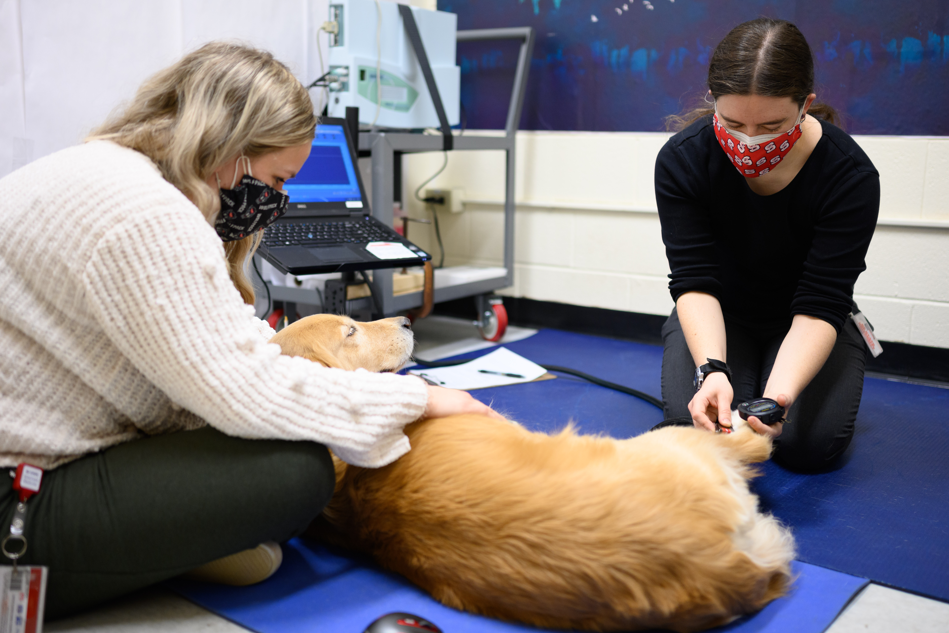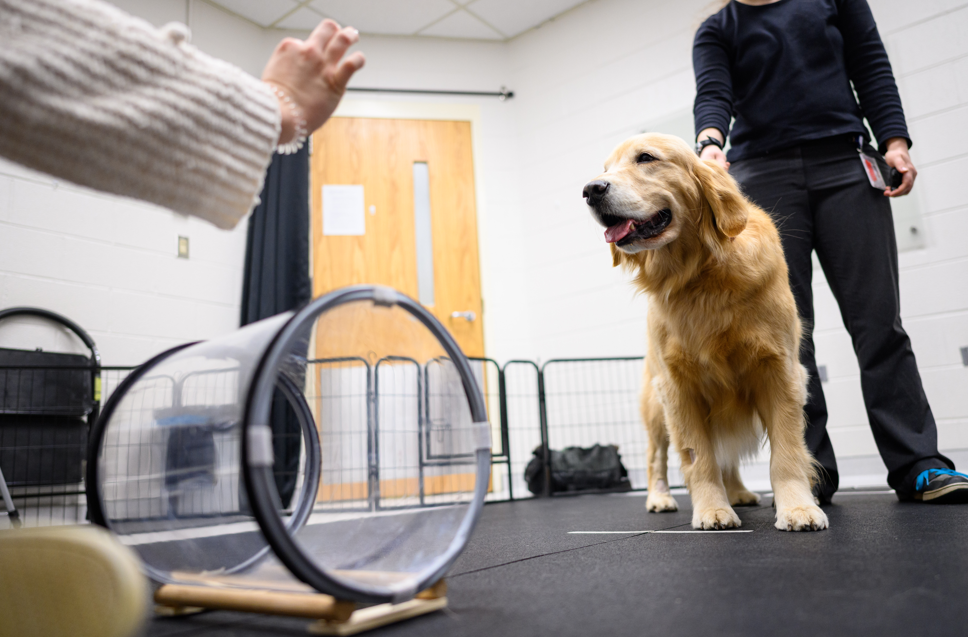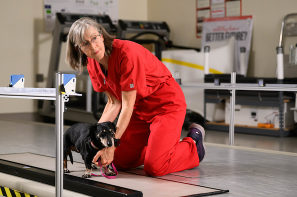Our Research
The Thinking Pets Program conducts both non-clinical and clinical research with multiple groups across the College of Veterinary Medicine. This allows for an interdisciplinary approach to our research. Our collaborators include other CVM research labs, external companies, and Duke University.
To learn more about non-clinical research, clinical research, and our collaborators – explore the sections below.
Research Topics
| Non-Clinical Research | Clinical Research |
|---|---|
| Cognition and Neuroaging | Anxiety Management Technology |
| Pain Management | Pain Management |
| Energy Expenditure | Sleep and Activity Patterns |
| Olfaction | |
| Human-Animal Interaction |
Recently Completed Studies

Check out the links below to learn more about recently completed studies and clinical trials by The Thinking Pets Program and Behavioral Medicine Service:
Study: Do Dog Breeds Differ in Pain Sensitivity?
- The purpose of this study was to determine whether breed differences in sensitivity exist. If dog breeds do have real differences in sensory thresholds, new approaches are needed to optimize pain management in a breed-specific manner.

Clinical Trial: Is Your Dog Anxious When Left Alone?
- The BMS evaluated a non-pharmacologic anti-anxiety device for the improvement of canine separation anxiety in a national sample.
Clinical Trial: What is Your Dog’s Sleep Pattern?
- The BMS monitored sleep and activity patterns of canine companions and their owners for two weeks.

Clinical Trial: Is Your Cat Anxious at the Veterinary Clinic?
- The BMS evaluated a pharmacologic anti-anxiety treatment for the improvement of feline anxiety during travel and physical examination.
Meet Our Collaborators
These people and groups work closely with us and can be found on many of our publications. Their programs are comprised of top veterinarians and researchers in their fields and their efforts are a great contribution to the work of the Comparative Behavioral Research Laboratory.

- The Behavioral Medicine Service (BMS)
- The BMS specializes in the treatment of behavior disorders in companion animals, specifically anxiety disorders, compulsive behaviors, and numerous other problems in dogs and cats.
- NC State’s Translational Research In Pain Program (TRiP)
- Dr. Duncan Lascelles leads the NC State’s TRiP program which aims to improve pain management in animals and humans. The Comparative Behavioral Research Laboratory collaborates with TRiP to complete cognitive testing which is used to identify markers of pain and improvements in painfulness over time.
- NC State’s Canine Spinal Cord Injury Program
- Dr. Natasha Olby is focused on neuroaging in senior dogs and leads the NC State Canine Spinal Cord Injury Program. As a part of neuroaging studies, the Comparative Behavioral Research Laboratory collaborates with the program to complete cognitive testing that can show changes in cognitive function over time.
- Duke Canine Cognition Center
- The Duke Canine Cognition Center focuses on a comparative study of dog cognition. The center aims to better understand the relationship between canine minds and our minds. Their work can improve our understanding of human-animal interactions from an evolutionary perspective and inform our use of dogs in daily life (i.e. service dogs).
Meet Our Facilitators
- The Clinical Studies Core (CSC)
- The CSC facilitates research efforts within NC State and in collaborative opportunities, such as those with external companies mentioned above. Many clinical research endeavors would not be possible without the support and hard work of the Clinical Studies Core.
- The Comparative Medicine Institute (CMI)
- The CMI facilitates multidisciplinary research teams focused on promoting and translating scientific discoveries to their clinical/societal applications to improve the health of animals and humans
- Translational Pharmacology & Physiology (TPP)
- A program of the CMI, the TPP promotes a collaborative faculty network that facilitates and expedites pre-clinical research into approved animal health technologies, in areas such as pain physiology and management.